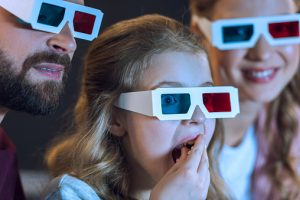 Millions of Americans experience traumatic brain injuries (TBIs) every year. Symptoms can differ from patient to patient, with some exhibiting no physical signs whatsoever while others are severely inhibited by headaches, trouble focusing, confusion, and several different kinds of visual impairment. One common symptom many concussion patients experience during their recovery is sensitivity to light, also called photophobia.
Millions of Americans experience traumatic brain injuries (TBIs) every year. Symptoms can differ from patient to patient, with some exhibiting no physical signs whatsoever while others are severely inhibited by headaches, trouble focusing, confusion, and several different kinds of visual impairment. One common symptom many concussion patients experience during their recovery is sensitivity to light, also called photophobia.
“Photophobia is so common that many neurosurgical intensive care units consider it standard operating procedure to keep lights dimmed in rooms containing TBI patients.” This light sensitivity can result in painful headaches and other detrimental side effects, forcing the patient to stay inside or in a darkened room for extended periods of time. Even without the painful headaches, light sensitivity can make it much more difficult for patients to get back into a normal routine after experiencing a TBI.
Advertisement
A new study completed at the University of Cincinnati has found that using glasses with colored lenses may provide some relief to post-concussion patients suffering from photophobia. Sunglasses with dark lenses have been found to offer some relief in outdoor environments, but they are often an impairment to normal sight when indoors, which gave researchers the basis for this study.
They decided to see if using different colored lenses could serve as an alternative to wearing dark sunglasses indoors and relieve some of the light sensitivity patients experience during recovery. Researchers examined 51 concussion patients and studied the effects of using different colored lenses on their photophobia.
Large majority find relief with colored lenses
The results of the study were promising. 85 percent of the patients examined found relief from their light sensitivity symptoms when wearing glasses with lenses of one or more colors (red, blue, green, and purple). There were no negative side effects reported by the patients after wearing the glasses for extended periods of time.
As photophobia is so common after TBIs, the results of this study could lead to a new treatment option for patients in recovery. These glasses would act as “a brace or cast but for the brain,” says Joe Clark, Ph.D., lead author of the study, offering a temporary pain solution that would prevent additional injury.
The researchers also developed a way to test for photophobia that could be extremely useful for medical professionals and trainers looking to recommend the colored glasses to their patients. The use of these glasses could allow patients to return to normal, low-risk, activities much sooner than they would otherwise. Researchers also recommend the use of wide-brimmed hats when outdoors and brightness adjustments on any devices patients may be using to further combat photosensitivity after sustaining a TBI.
Related: Ischemic stroke risk linked to traumatic brain injury (TBI), independent of other factors
